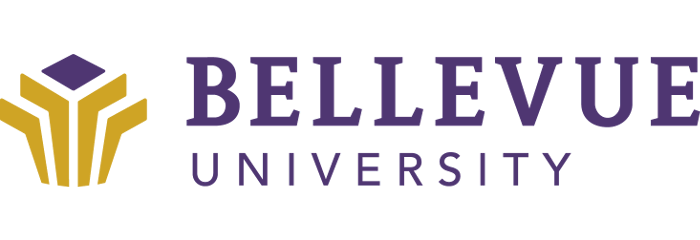Best Online Master's in Cybersecurity
ON THIS PAGE
Rankings Overview Admission Common Courses Careers Is It Worth It? FAQsAn online master's in cybersecurity equips students with expertise in protecting digital assets through advanced cryptography, network defense, and risk management education. As the demand for cybersecurity professionals rises, these degrees create a strategic opportunity for advancing your career.
Key Takeaways:
- Graduates of the master's degree in cybersecurity online at Utica University earn a median salary of $97,629, placing it in the top 3% for earning potential nationwide.
- Georgia Institute of Technology has a 92% graduation rate.
- Liberty University has an extensive online enrollment of over 45,000 graduate students, making it the most popular choice.
Our ranking methodology for the best online master's in cybersecurity focuses on analyzing alum salaries to aid prospective students in identifying financially beneficial online degree programs. Each program is assigned a Salary Score, represented as letter grades, to illustrate how alum salaries compare across similar programs. Additionally, schools with high online enrollment are included in our lists, indicating popularity and student satisfaction.
Best Online Master's in Cybersecurity
| Rank | School | Salary Score | Median Earnings | A+ | $97,629 | 959 | $12,000 |
|---|---|---|---|---|---|---|---|
| George Mason University | A | $91,584 | 3,589 | $19,000 | |||
| National University | B- | $69,815 | 6,793 | $18,720 | |||
| Liberty University | N/A | N/A | 45,783 | $10,170 | |||
| Western Governors University | N/A | N/A | 44,128 | $9,310 | |||
| Capella University | N/A | N/A | 26,447 | $17,160 | |||
| Southern New Hampshire University Online | N/A | N/A | 22,314 | $18,345 | |||
| Georgia Institute of Technology | N/A | N/A | 18,575 | $5,360 | |||
| Arizona State University, Online | N/A | N/A | 16,309 | $9,075 | |||
| Purdue Global | N/A | N/A | 11,615 | $8,400 |
Best Online Master's in Cybersecurity - Program Details
#1
- Salary Score: A+
- Median Earnings: $97,629
- Online Enrollment: 959 enrolled
- Annual Tuition: $12,000
Online degree:
Why we like them: Utica offers a master's degree in cybersecurity online that provides strong post-graduation outcomes, with graduates earning a median salary of $97,629, placing the university in the top 3% for earnings among peers. The program consists of 30 credit hours and can typically be completed online at $895 per credit hour for two years. Students can tailor their studies through Digital Forensics, Cybersecurity Operations, or Cybercrime and Fraud concentrations. The program is recognized as a National Center of Academic Excellence in Cyber Defense Education, ensuring relevant industry partnerships and experienced instruction.
#2
- Salary Score: A
- Median Earnings: $91,584
- Online Enrollment: 3,589 enrolled
- Annual Tuition: $19,000
Online degree:
Why we like them: GMU excels in preparing graduates for successful careers, highlighted by a median earnings score of $91,584, ranking it in the top 8% nationally. Additionally, the university's online enrollment of 3,589 students places it among the top 5% of institutions for flexible learning. The online MS in Applied Information Technology offers a 30-credit curriculum for leaders, featuring specializations such as Cyber Security, Data Analytics & Intelligence Methods, and Machine Learning Engineering. With no in-person requirements, this program is ideal for those looking to enhance their IT management and technical skills.
#3
- Salary Score: B-
- Median Earnings: $69,815
- Online Enrollment: 6,793 enrolled
- Annual Tuition: $18,720
Online degree:
Why we like them: NU ranks among the top 3% of institutions for online enrollment, accommodating 6,793 students. The Master of Science in Technology Management - Cybersecurity Management offers 100% online coursework designed for working professionals seeking advanced skills in cybersecurity team management. This 30-credit program consists of 10 courses and typically spans about 15 months. Students engage in risk management, privacy, security, contingency planning, and cloud systems accreditation, guided by doctoral-level faculty. Graduates earn a salary of $69,815, in the top 55% of earners nationally.
#4
- Salary Score: N/A
- Median Earnings: N/A
- Online Enrollment: 45,783 enrolled
- Annual Tuition: $10,170
Online degree:
Why we like them: LU ranks in the top 1% for online enrollment, reflecting its extensive reach and appeal among distance learners. The online Master of Science in Cyber Security features a 36-credit-hour curriculum designed for flexibility, offered entirely through 8-week courses. Students can transfer up to 50% of the degree credits. The Southern Association of Colleges and Schools Commission on Colleges (SACSCOC) accredits the program, actively covering essential topics such as Digital Forensics, Applied Cryptography, Ethical Hacking, and Web Security.
#5
- Salary Score: N/A
- Median Earnings: N/A
- Online Enrollment: 44,128 enrolled
- Annual Tuition: $9,310
Online degree:
Why we like them: WGU offers a Master of Science in Cybersecurity and Information Assurance, preparing students for high-demand cybersecurity careers. With an online enrollment of 44,128 students, WGU ranks among the top institutions for distance learning. This program typically allows for completion in 18 months and features Cloud Security and Penetration Testing courses. Students also have the opportunity to earn industry-recognized certifications at no additional cost.
#6
- Salary Score: N/A
- Median Earnings: N/A
- Online Enrollment: 26,447 enrolled
- Annual Tuition: $17,160
Online degree:
Why we like them: Capella excels in online enrollment with 26,447 learners, ranking in the top 1% for student engagement in the online education sector. The MS in Cybersecurity is a 48-credit program designed for practical application, requiring seven core courses and five specialization courses, culminating in an applied IT project. This program incorporates virtual lab environments and live industry projects to enhance hands-on learning.
#7
- Salary Score: N/A
- Median Earnings: N/A
- Online Enrollment: 22,314 enrolled
- Annual Tuition: $18,345
Online degree:
Why we like them: With an online enrollment of 22,314 students, SNHU effectively meets the needs of a growing digital landscape. SNHU Online offers a Master of Science in Cybersecurity, designed with a 36-credit framework that typically spans around 15 months. The curriculum emphasizes practical application through hands-on experiences, including participation in technical competitions and a capstone project. Focused on IT Management, students explore enterprise technology management, project management, and cyber law. The New England Commission of Higher Education accredits this degree.
#8
- Salary Score: N/A
- Median Earnings: N/A
- Online Enrollment: 18,575 enrolled
- Annual Tuition: $5,360
Online degree:
Why we like them: Georgia Tech secures its place with an impressive online enrollment figure of 18,575 students, distinguishing it in the top 1% of schools with the highest virtual engagement. Georgia Tech's Online Master of Science in Cybersecurity offers a 100% online learning structure over two to three years, designed to accommodate working professionals. The program requires completion of 32 credit hours through 10 courses, choosing from three tracks: Information Security, Cyber-Physical Systems, and Policy. This flexibility allows you to specialize your degree to fit your career goals. With asynchronous courses, you also have the freedom to study at your own pace.
#9
- Salary Score: N/A
- Median Earnings: N/A
- Online Enrollment: 16,309 enrolled
- Annual Tuition: $9,075
Online degree:
Why we like them: ASU Online ranks among the top schools nationwide due to its expansive online enrollment of over 16,000 online graduate students. The Master of Arts in Global Security - Cybersecurity is a 30-credit degree featuring ten 7.5-week courses that address cybersecurity from policy and strategy perspectives, making it accessible to all students. The curriculum includes Cybersecurity Threats and Trends and Security Studies courses, offering unique insights and real-world relevance. With a strong recommendation rate of 90%, students can expect a supportive educational environment at ASU Online.
#10
- Salary Score: N/A
- Median Earnings: N/A
- Online Enrollment: 11,615 enrolled
- Annual Tuition: $8,400
Online degree:
Why we like them: Purdue Global holds a ranking of 10 due to its massive online enrollment of 11,615 graduate students, putting it in the top 2% when compared to other institutions. The online Master's in Cybersecurity Management is specifically designed for aspiring cybersecurity leaders. Accredited by the Higher Learning Commission, it encompasses 60-80 quarter credits spread across core subjects like ethical hacking and network defense, with electives tailored to your interests. The program features learning labs for practical experience and offers seven concentrations, including AWS Cloud Technologies and Secure Software Development.
#11
- Salary Score: N/A
- Median Earnings: N/A
- Online Enrollment: 5,033 enrolled
- Annual Tuition: $10,425
Online degree:
Why we like them: Regent Online is a popular choice, ranking in the top 4% for student enrollment, with over 5,000 online learners at the graduate level. The MS in Cybersecurity offers 30 credit hours, focusing on critical skills like network security, identity management, and disaster recovery. Students gain access to a multimillion-dollar cyber range for practical experience. Specializations include Cybersecurity Practitioner and Cybersecurity Policy, aligning with industry certifications. Core courses cover Digital Forensics, Cybersecurity Ethics, and Business Continuity.
#12
- Salary Score: N/A
- Median Earnings: $46,741
- Online Enrollment: 4,500 enrolled
- Annual Tuition: $11,775
Online degree:
Why we like them: Saint Leo's MS in Cybersecurity provides a curriculum focused on technical security skills. The program is structured to build core competencies in operating systems, network security, cryptography, and application security. A significant feature is its integration of state-of-the-art labs, including a cybersecurity lab and cyberforensic lab, aiding in hands-on learning experiences. With an emphasis on emerging technologies, the program ensures you're adept in mobile security and compliance issues, preparing you for a successful career in various sectors, including federal and private organizations.
#13
- Salary Score: N/A
- Median Earnings: N/A
- Online Enrollment: 4,022 enrolled
- Annual Tuition: $16,731
Online degree:
Why we like them: NKU ranks highly for its online enrollment, with 4,022 students participating in its graduate programs. The school's MBA program, accredited by the AACSB, allows you to complete 33 credit hours, enabling you to finish in as little as 12 months. You can customize your educational journey by choosing from various concentrations, including Cybersecurity, Data Analytics, Finance, and Healthcare Administration. This customization helps you align your studies with your career aspirations while emphasizing practical applications relevant to today's business landscape.
#14
- Salary Score: N/A
- Median Earnings: N/A
- Online Enrollment: 3,797 enrolled
- Annual Tuition: $21,852
Online degree:
Why we like them: The MS in Cybersecurity at NYU Tandon School of Engineering stands out for its connection with the NYU Cyber Fellows, offering a 75% tuition scholarship. This online program is recognized as a National Center of Academic Excellence in Cyber Operations and Cyber Defense Research. Students can choose to specialize in Cyber Defense or Cyber Operations, providing focused paths to address sophisticated cybersecurity needs. The curriculum includes optional research projects and master's thesis opportunities to deepen your engagement. Additionally, the program benefits from the supportive Tandon Bridge Program, designed for students from non-engineering backgrounds to prepare for this advanced degree.
#15
- Salary Score: N/A
- Median Earnings: N/A
- Online Enrollment: 3,561 enrolled
- Annual Tuition: $15,766
Online degree:
Why we like them: MU boasts an exceptional online enrollment, with 3,561 students participating in remote learning, placing it among the top 5% of institutions for online presence. The university's Master of Science in Cybersecurity program is entirely online and designed for quick completion in as few as 12 months. Students can choose between Technical or Business/Leadership concentrations, studying topics like IT Management and Risk Management. Unique resources include the Maryville Virtual Lab and real-world projects through the Cybersecurity Center for Excellence, ensuring a practical learning experience.
#16
- Salary Score: N/A
- Median Earnings: N/A
- Online Enrollment: 3,344 enrolled
- Annual Tuition: $6,375
Online degree:
Why we like them: UWF's online Master of Science in Cybersecurity requires the completion of 30 credit hours over approximately two years. You can specialize in one of four concentrations: Data Security, National Security, Security Management, or Software and System Security. You'll gain hands-on experience through access to UWF's Cyber Range and engage in real-world simulations. The program culminates in a capstone project where you'll research and report on contemporary cybersecurity challenges. In addition to the core curriculum, the program includes unique facets like virtualized computing systems training and potential training in state-of-the-art labs.
#17
- Salary Score: N/A
- Median Earnings: N/A
- Online Enrollment: 3,190 enrolled
- Annual Tuition: $14,157
Online degree:
Why we like them: UWA offers a flexible online MBA program that can be completed in approximately one year, depending on credit transfer and choice of emphasis, which ranges from 33 to 45 credit hours. The program features 8-week course cycles and includes concentrations such as Cybersecurity, allowing for specialization through an additional 9-hour emphasis track or 18-hour specialization track. Students can engage fully online, making it a viable option for those balancing professional and personal commitments.
#18
- Salary Score: N/A
- Median Earnings: N/A
- Online Enrollment: 3,001 enrolled
- Annual Tuition: $21,978
Online degree:
Why we like them: UA offers an online master’s in cybersecurity designed for working professionals. This 33-credit interdisciplinary program includes core courses and an option to specialize in either the Information Systems or Physical Systems track. The curriculum features interactive classes, including courses on information security risk management and data mining for business intelligence. Designated as a Center of Academic Excellence in Cyber Defense, the program leverages insights from multiple departments, preparing you for real-world challenges with accelerated 7-week admissions and flexible learning paths.
#19
- Salary Score: N/A
- Median Earnings: N/A
- Online Enrollment: 2,943 enrolled
- Annual Tuition: $11,880
Online degree:
Why we like them: Bellevue's online Master of Science in Cybersecurity requires the completion of 36 credit hours. The program, designated as a National Center of Academic Excellence in Cyber Defense Education by the NSA and DHS, emphasizes hands-on learning with industry tools. Core courses include Computer Forensics, Ethical Hacking and Response, and Cybersecurity Governance and Compliance. The curriculum also offers elective courses such as Information Warfare and Cloud Computing, allowing customization based on your interests.
#20
- Salary Score: N/A
- Median Earnings: N/A
- Online Enrollment: 2,597 enrolled
- Annual Tuition: $51,459
Online degree:
Why we like them: UNCW holds a prominent position among schools for online master's programs, thanks in large part to its extensive online enrollment of 2,597 students. It offers a Master of Business Administration with a specialization in Cybersecurity online. This program, accredited by AACSB International, is crafted to impart leadership and technical skills necessary for managing cybersecurity in business environments. Comprising 36 credit hours, including 30 core MBA hours and 6 elective hours, it covers security analytics, risk management, and strategic policy development.
#21
- Salary Score: N/A
- Median Earnings: N/A
- Online Enrollment: 2,200 enrolled
- Annual Tuition: $13,536
Online degree:
Why we like them: Webster's cybersecurity operations master's degree is a forward-thinking program that emphasizes the management of cybersecurity operations and offers unique concentrations, such as Artificial Intelligence and Data Analytics. Courses are available in various delivery modes, and the program benefits from the resources of Webster’s UNCOMN Cybersecurity Center, which provides world-class tools and technologies for both learning and research. This aligns with Webster's designation by the NSA and DHS as a National Center of Academic Excellence in Cyber Defense.
#22
- Salary Score: N/A
- Median Earnings: N/A
- Online Enrollment: 2,117 enrolled
- Annual Tuition: $12,855
Online degree:
Why we like them: The MSU online Master of Science in Cybercrime and Digital Investigation requires the completion of 30 credits and can be finished in about 2 years. The program is tailored for individuals aspiring to roles in cybercrime investigation across law enforcement, government, and private sectors. Notably, it comprises six core courses and offers four electives tailored to your career goals, without the necessity of an IT background. The core curriculum encompasses vital areas such as cybercrime, cyberwarfare, digital forensic investigations, and policy responses to cybercrime.
#23
- Salary Score: N/A
- Median Earnings: N/A
- Online Enrollment: 1,850 enrolled
- Annual Tuition: $21,450
Online degree:
Why we like them: The MS in Cybersecurity at Excelsior is a fully online program recognized as a Center of Academic Excellence in Cyber Defense by the NSA and DHS. This 30-credit course offers a concentration in Information Assurance, focusing on areas such as software control management, cyber defense, and digital forensics. The curriculum includes interactive projects to enhance practical skills in cybersecurity management and analysis, preparing you for senior roles in the field. Transfer up to 15 graduate-level credits to shorten completion time. The program notably includes interactive projects and a capstone course to solidify learning.
#24
- Salary Score: N/A
- Median Earnings: N/A
- Online Enrollment: 1,699 enrolled
- Annual Tuition: $7,875
Online degree:
Why we like them: The Master of Science in Cyber Operations and Resilience at BSU is designed for both technical and non-technical tracks, allowing flexibility in specialization. The program is entirely online and features seven-week courses with six start dates a year, offering significant scheduling flexibility for distance learners. Aligned with industry leaders like VMware IT Academy, Palo Alto Academy, and Cisco Networking Academy, it provides free resources that enhance learning. The program is hands-on, using an online Cyber Operations and Resilience Learning Lab, emphasizing real-world application.
#25
- Salary Score: N/A
- Median Earnings: N/A
- Online Enrollment: 1,648 enrolled
- Annual Tuition: $13,680
Online degree:
Why we like them: The online Master of Science in Cybersecurity at SMU offers a 36-credit hour curriculum that can be completed in 12-24 months. Designed by cybersecurity experts, the program features preparation for certifications like CISSP, CISM, CySA+, Network+, and Security+. As an Official CompTIA Authorized Academic Partner, SMU also provides embedded graduate certificates in Cybersecurity Management and Technology, allowing students to specialize within the field. Importantly, the program does not require a bachelor's in computer science, accommodating a wider range of applicants.
#26
- Salary Score: N/A
- Median Earnings: N/A
- Online Enrollment: 1,636 enrolled
- Annual Tuition: $28,887
Online degree:
Why we like them: UT Tyler offers an accredited online MBA in Cyber Security. This dynamic program spans 36 credit hours and can be completed in as few as 12 months. Courses integrate the National Security Agency’s ISAM methodology, providing a curriculum for risk assessment and security management. It caters to a broad spectrum of professionals beyond IT, including those in finance, marketing, and defense. The program covers cryptography, cybersecurity management, and contingency planning, equipping you to handle real-world security threats through substantial project work and case studies.
#27
- Salary Score: N/A
- Median Earnings: N/A
- Online Enrollment: 1,369 enrolled
- Annual Tuition: $66,046
Online degree:
Why we like them: Tulane’s online Master of Science in Cybersecurity Management features 11 courses including eight core courses, two electives, and a capstone course. It boasts no requirement for a thesis, facilitating a more streamlined path to degree completion. Students benefit from the guidance of nationally recognized faculty members, bringing industry-ready skills into the classroom. The program provides flexibility with the opportunity to transfer up to nine credits from other graduate-level courses, making it financially advantageous.
#28
- Salary Score: N/A
- Median Earnings: N/A
- Online Enrollment: 1,210 enrolled
- Annual Tuition: $9,918
Online degree:
Why we like them: Lindenwood's online Master of Science in Cybersecurity Management offers a curriculum attuned to the dynamic needs of the cybersecurity field. The 36-credit program is entirely online, providing flexibility for distance learners. It includes core areas such as forensics evaluation, ethical hacking, and cybersecurity systems and architecture. Emphasizing technology and business integration, the program equips you for leadership roles such as database administrators and computer systems managers. It also includes industry insights from experienced instructors.
#29
- Salary Score: N/A
- Median Earnings: N/A
- Online Enrollment: 1,177 enrolled
- Annual Tuition: $15,072
Online degree:
Why we like them: CCU's Master of Science in Cyber Security offers an entirely online curriculum, accredited by the Higher Learning Commission, requiring 30 credit hours and achievable in as little as 15 months. The program is structured to adapt to the schedules of busy professionals, with courses designed in five- or seven-week blocks. Students engage in lab-based exercises in a virtual environment, covering digital forensics, ethical hacking, and security governance. The program focuses on key areas necessary for careers in digital forensics, cyber criminology, and cyber architecture.
#30
- Salary Score: N/A
- Median Earnings: N/A
- Online Enrollment: 1,039 enrolled
- Annual Tuition: $32,058
Online degree:
Why we like them: The ETSU MBA with a concentration in Cybersecurity Management is a 36-credit hour online program that integrates core business principles with specific cybersecurity management skills. Accredited by the AACSB, examples courses include Network and Information Security, Cyber Risk Governance, and Information Risk Management. Students explore practical applications through a strategic experience capstone, engaging with real-world business problems. The MBA offers depth in data analysis, market strategy, and strategic leadership.
Student Reviews of Online Cybersecurity Programs
The program is really good, and the time commitment is manageable even as a parent working full time. I do wish I would get less phone calls, I made it through my entire bachelor's program without having to talk on the phone, and since I have started my masters, I get called 3-4 times a week, and they always leave a message like "we just want to make sure everything is ok". Everything is ok, I will let you know if I need help or assistance 🙂
Review Date: 8/27/2025
Would Recommend: Yes
Helpful for Career: Yes
I have been attending the University of Phoenix actively since 2020, and have earned two degrees (my third upcoming in March 2026), so I feel I have a deep and all-encompassing view of the school. Also, I have attended two other schools. One, a community college before Phoenix and then in 2021 I briefly transferred to WGU before going back to UoP after less than a year. With my previous experiences at other schools, I can attest that Phoenix is, by far, the more superior academic experience. Phoenix... Read More
Review Date: 9/1/2025
Would Recommend: Yes
Helpful for Career: Yes
This like all things has both good and bad. However, the good far outweighs the bad. This is my second Masters through Purdue Global. First, the admission process is a little disappointing. There doesn't seem to be a hard process. This is great because some people, unfortunately, need opportunities that they would otherwise never receive. Honestly, I shouldn't be in this Masters program, and a more stringent process or advisors would have steered me away. However, feeling qualified or that there... Read More
Review Date: 7/26/2023
Would Recommend: Yes
Helpful for Career: Yes
My experience in the cybersecurity program at the University of Phoenix has been both challenging and rewarding. The curriculum is structured to build a solid foundation in core areas like network security, risk management, ethical hacking, and secure coding practices. One of the things I appreciate most is the practical, hands-on approach to learning using industry-standard tools such as Wireshark, Burp Suite, and Kali Linux in labs to simulate real-world cyber threats.
The instructors are knowledgeable... Read More
Group projects and discussion boards also give me the opportunity to collaborate and learn from peers with different backgrounds, which strengthens communication and teamwork, critical skills in cybersecurity roles. The flexibility of online learning helps me balance school, work, and personal life while staying on track academically.
Overall, the program has given me a deeper understanding of how to defend enterprise systems, interpret threat intelligence, and apply security frameworks like NIST and ISO/IEC 27001 in real scenarios. I feel more confident and prepared to pursue certifications like CompTIA Security+, CEH, or CISSP after graduation.
Review Date: 7/30/2025
Would Recommend: Yes
Helpful for Career: No
While I am still currently enrolled in the graduate Cyber Security Engineering program, I want to provide a current review that provides some insights into the program. My experience so far with the program is based on an online environment and being several classes into the program. The number one downside of this program is not the actual lesson content, but the implementation of learning. This is to say that in the process of working through the lecture content, you will experience inconsistent... Read More
Review Date: 10/8/2023
Would Recommend: No
Helpful for Career: No
I chose WGU because I needed a degree quickly after I got some bad medical news and was told I'd be medically retired soon. I work in cyber for the military so I have gotten training and have a handful of certifications. WGU was largely based around CISSP with a class about CEH and one about CHFI. They've recently updated the curriculum. I loved how WGU works. My mentor was hands off after I finished 4 courses in a month, but was always on-call when I was ready to start my next course. The mentors... Read More
Review Date: 5/21/2023
Would Recommend: Yes
Helpful for Career: No
ECPI University is a private, for-profit university that offers accelerated degree programs in high-demand fields. The university has a strong reputation for its drive, motivation, and high level of experience. ECPI University is a great option for students who are looking for a quality education and want to get started in their career quickly. I never felt like any class did not have the intended purpose of broadening my perspective and expertise on my chose field of Cyber Security. Here are some... Read More
Review Date: 5/11/2023
Would Recommend: Yes
Helpful for Career: No
I graduated with a 4.0 GPA in the M.S. in Cybersecurity & IT online program. That being said, the program felt like they were copying and pasting a template throughout the entire program. There were 11 courses at 3 units each, making 33 program hours. Each class was 8 weeks long and consisted of a 5-8 discussions, 1 mid term, 1 final, and maybe a project. I would say about 4 courses were challenging and required some time to actually read the course text. Also, some instructors are really on one... Read More
Review Date: 3/24/2022
Would Recommend: No
Helpful for Career: No
I have nothing against Maryville but this is my opinion and for students thinking about entering the Masters in Cybersecurity online program. I graduated with a 3.6 program GPA. The program is approx. 85 readings and quick quizzes. The other approx. 15% is a labs. The terms are accelated 8 weeks with zero breaks in between terms (end of term is on Sunday, next subject starts the next day). The instructors are ok but how much extra time can they spend on difficult subjects with 8-week terms? Labs... Read More
Review Date: 1/2/2023
Would Recommend: No
Helpful for Career: No
I was really excited about obtaining a Master's Degree. However, I'm in the middle of class I receive a bill for $1780.00 contact the financial aid department who transferred me twice had me in hold while I waited for them to talk to their supervisor. And then was told oh we thought you were in another program. However. a month prior I received a financial aid award letter with the correct program. Therefore, all studet loan info was correct and all ready to go. Now, everyone else in my class received... Read More
Review Date: 8/24/2019
Would Recommend: No
Helpful for Career: No
First of all, please read the other 4 reviews on this page. Both negative and positive have good points (except, "WGU Student"). The concept behind WGU is excellent and there are some good Bachelor programs there. Once you get to the Masters level, things tend to decline. As some mention, you need to be self-motivated. What this really means is: there is a lot of information missing or incorrect in the assignments. FAR beyond motivation, you have to search Reddit for clues, push the instructors to... Read More
Review Date: 12/28/2019
Would Recommend: Yes
Helpful for Career: No
I love UMUC and do not regret enrolling in the course. The professors I've had so far have all been really knowledgeable and helpful during my time of struggle. The enrollment process was simple and quick. Financial aid has been really easy to apply for a disbursement dates have been on time. I haven't had any issues thus far and I look forward to completing my program.
Review Date: 6/18/2018
Would Recommend: Yes
Helpful for Career: Yes
This school is meant for people who are extremely self-motivated. If you expect that the school will spoon feed you, you will be very disappointed. Each course is like a big puzzle and, if you can crack it, you will love the courses. I start every course with great fear that I may not be able to complete it but, after making progress by going through all their helping guides and course materials, I will feel little confident and once the course is through, I get all my energy back to start the next... Read More
Review Date: 7/10/2018
Would Recommend: Yes
Helpful for Career: Yes
I completed my bachelors program through WGU in late 2017, early 2018. I had small gripes here and there about how the college worked but felt my bachelors experience was generally positive overall. I cannot say that for my Masters Degree experience which resulted in me leaving the program 10 days in for the reasons below: 1. The intake process consists of you meeting with a counselor who discusses aspects of the degree you're interested in, telling you about the program courses, financial aid and... Read More
Review Date: 7/12/2018
Would Recommend: No
Helpful for Career: Yes
The bad reviews on here seem to be entirely based on financial aid problems. I certainly understand the frustration about this. Their financial aid department is pretty bad if you rely on it to supplement income, but this is no reason to give them one star. The school is pretty rigorous. It is not uncommon to have labs that take 5 or more hours, 1000-2500 word papers, plus professors that hold you accountable for everything. The financial aid has been infuriating at times, but the school itself is... Read More
Review Date: 7/23/2018
Would Recommend: Yes
Helpful for Career: Yes
The cyber security program at UMUC is one of a kind. It challenges from the first course taken. The staff support is incredible. I would definitely recommend this school for anyone. They have several different degrees offered. You can apply immediately.
Review Date: 12/26/2016
Would Recommend: Yes
Helpful for Career: Yes
I am currently pursuing a Cyber security Master's degree at University of Maryland University College. I am in the end of my first year, and will need funding for my second year. While cyber security is normally discussed as a technical domain, it is comprised of a 32 disciplines which encapsulate a plethora of fields, which are frequently non-technical yet they tend to be segmented from each other. UMUC does a great job by facilitating, an engaging academic environment, while accommodating the needs... Read More
Review Date: 3/9/2017
Would Recommend: Yes
Helpful for Career: Yes
I learned early on that everyone at WGU was there to help me succeed. Shortly after I sent my initial application in, I was contacted by my admissions mentor Tim. He helped my finish my application and everything I needed to get admitted into my masters program. Admittedly I was frustrated because my first application was rejected, but Tim was patient and worked with me. My second application was accepted and I was on my way. Once I was accepted into my program I was assigned a student mentor. My... Read More
Review Date: 3/31/2017
Would Recommend: Yes
Helpful for Career: No
Maryville University provides an excellent way to earn a graduate degree. The courses are rigorous but the instructors do provide you with the necessary information and background to complete the assignments and gain an excellent understanding of the material. Maryville University is a university that enjoys hearing student feedback. After every course, instructors ask for course improvements and students conduct an end of the course evaluation. Students that enroll in Maryville's M.S. in Cyber Security... Read More
Review Date: 6/27/2017
Would Recommend: Yes
Helpful for Career: No
Granted, I am just beginning this program, but having achieved a Master's degree and working on my Doctoral degree at another institution, I can say that SNHU is a very good school. I know it has its problems, but all schools have problems. The bulk of the negative replies I see are references to one teacher where a student takes one incident and tries to apply it to the entire school. This is childish at best. I think that before someone commits to an educational path, he or she should consider... Read More
Review Date: 12/13/2016
Would Recommend: Yes
Helpful for Career: No
Why Trust Us?
27 Data Researchers
60,000 Degrees Researched Annually
20,000 Hours Spent on Research Annually
Launching Rankings Since 2009
































